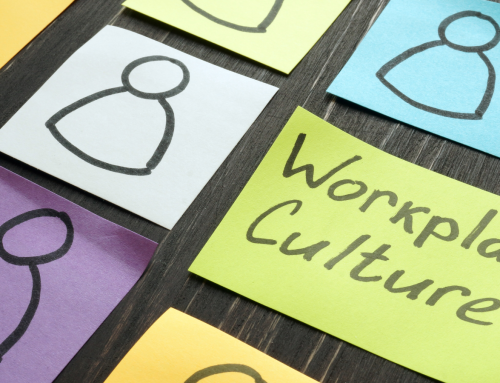When you hear “Artificial Intelligence” (AI), what comes to mind? Maybe robots, machines, or your favourite sci-fi movie where robots take over the world. While those are dramatic portrayals of AI, the reality is often much simpler—and closer to home. You’ve probably interacted with AI today without even realising it.
Think about it: unlocking your phone with Face ID, scrolling through social media feeds shaped by algorithms, using grammar checkers before sending emails, or asking Siri or Alexa to set an alarm. That’s AI working quietly behind the scenes at a personal level.
In the workplace, AI is proving to be a transformative tool—reshaping innovation, boosting efficiency, and redefining productivity. But with all its promise comes real concerns: privacy, algorithmic bias, societal impact, and the future of employment.
The debate over AI in the workplace is not ending any time soon – it’s just getting started. Let’s explore this techy world.
AI Is Growing At An Alarming Rate
According to studies, AI is advancing quickly and leaving its mark across industries—from education and healthcare to finance and beyond. On one hand, it’s a game-changer: it can analyse massive datasets in seconds, generate insights, and support smarter decision-making. Nearly half of HR functions are already enhanced by AI technologies.
On the other hand, this rapid growth is raising concerns. With AI automating tasks traditionally performed by humans, many workers are feeling anxious about job security and what the future holds. But here’s the reality: AI isn’t going anywhere. The question isn’t if we should use it, but how we can adapt and integrate it responsibly.
A Smart Approach to AI Adoption
To make the most of AI while minimising disruption, organisations should:
- Develop clear strategies to harness AI’s benefits while managing its risks
- Train employees to use AI tools effectively and confidently
- Stay informed through continuous research and industry engagement
- Provide transition plans for roles most affected by automation
- Promote a culture of adaptability and continuous learning
- Establish ethical frameworks and data governance policies to guide AI use
What are the benefits of AI in the workplace?
AI is already revolutionising the modern workplace and delivering major advantages across industry sectors.
• Enhanced Productivity and Efficiency
AI takes care of repetitive tasks like scheduling meetings, sorting emails, or entering data. This frees employees to focus on more strategic, creative, and engaging work. The result? Reduced errors, less burnout, and more job satisfaction.
• Boosted Creativity and Competitiveness
By enabling rapid experimentation and data-driven insights, AI can help spark new products, services, and business models. For companies in saturated markets, AI can be a critical differentiator.
• Smarter Data Analysis and Decision-Making
In today’s data-driven economy, AI’s ability to uncover patterns and trends from large datasets is invaluable. Businesses can make informed decisions—from forecasting market trends to optimising logistics and predicting customer behaviours.
• Improved Customer Service
AI-powered chatbots and recommendation systems offer fast, personalized support by analysing customer preferences and behaviour—enhancing satisfaction and loyalty.
The Downside Of AI
Artificial Intelligence comes with its share of limitations. Here’s a closer look at the disadvantages of AI.
-
Skill Gaps and Job Displacements
AI is mainly deployed to automate repetitive tasks, thus significantly threatening some job roles in particular industries. Organisations must help employees upskill and adapt to new roles.
-
System Failures and Overreliance
Technology is limited, and so is AI. Sometimes, AI makes mistakes, is subject to system failures, and even produces inaccurate results. Solely relying on technology without human oversight, interpretation and supervision can be risky. Human judgment remains essential.
- Privacy and ethical concerns
AI relies on data to produce results. That means it can be affected by biases they are trained on. Issues around fairness, data misuse, and transparency are ongoing challenges that must be addressed.
Final thoughts
AI is undeniably changing the workplace—for better and for worse. The goal isn’t to fear it, but to strike the right balance between human and machine intelligence. That means embracing AI’s capabilities while upholding human judgment, ethics, and empathy.
At ESN, we help organisations navigate this transformation. Our expert team supports companies with tailored strategies to build positive workplace cultures, manage change, reduce stress from AI uncertainty, and boost employee resilience.
Article Reference:





